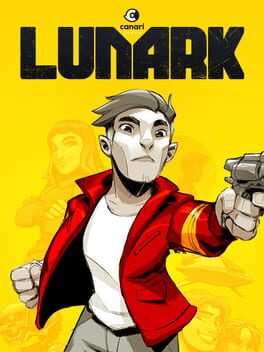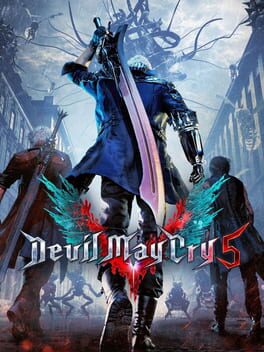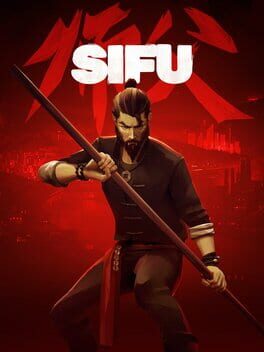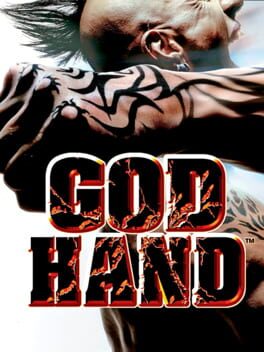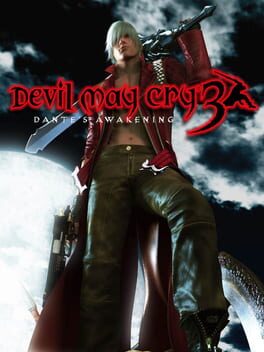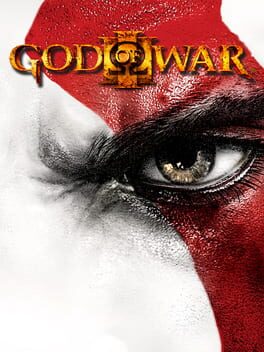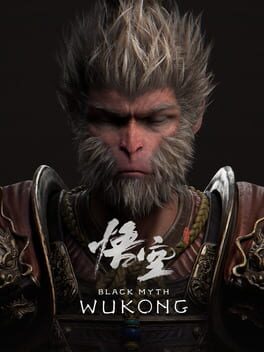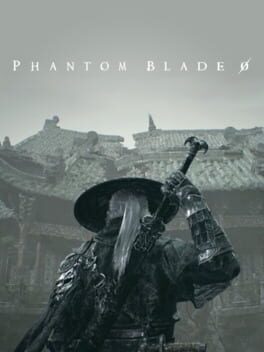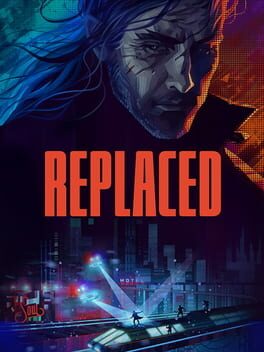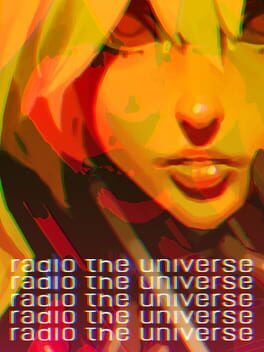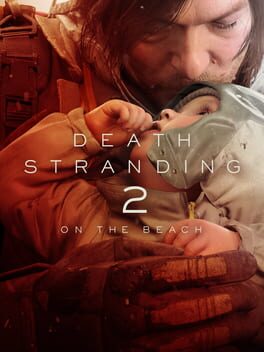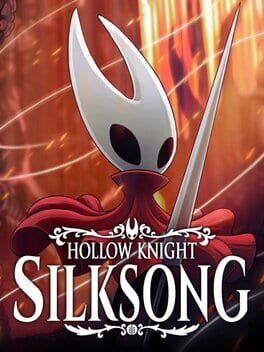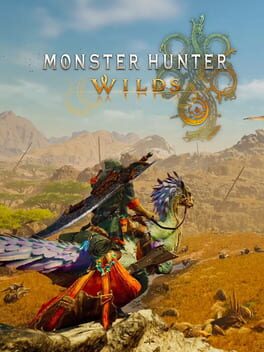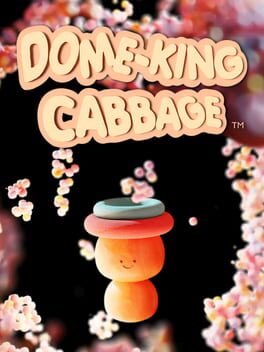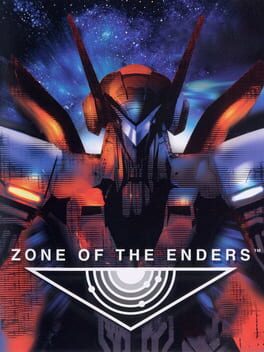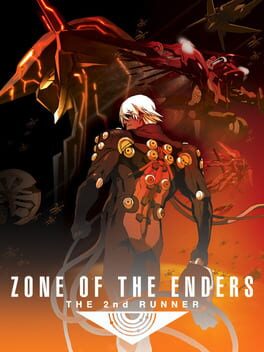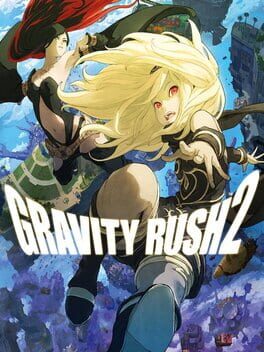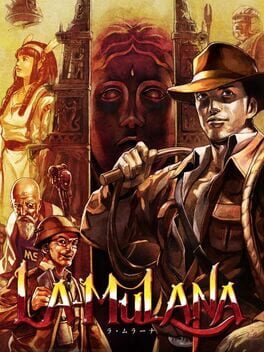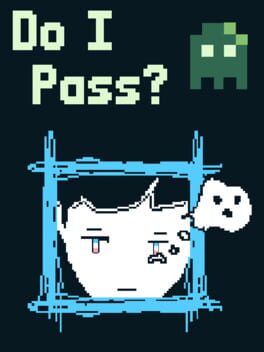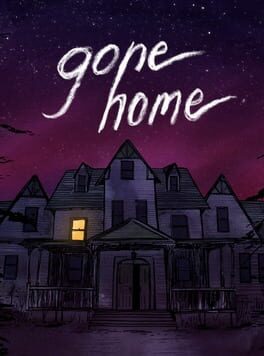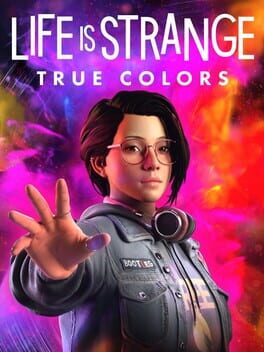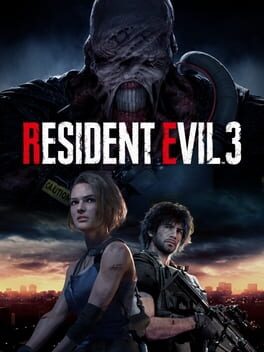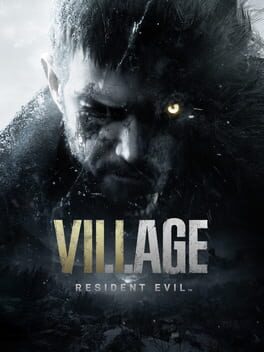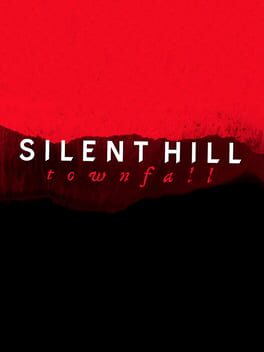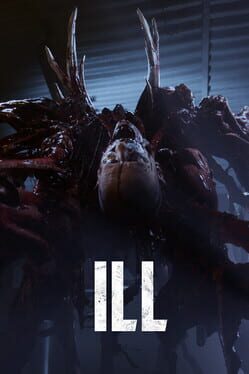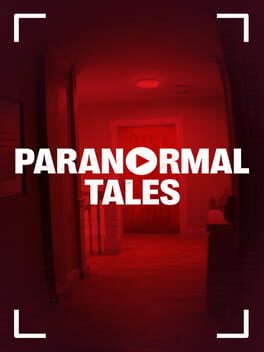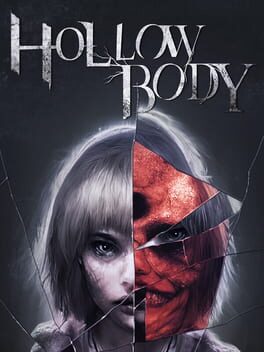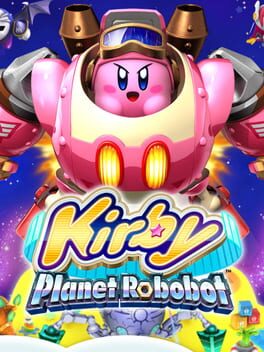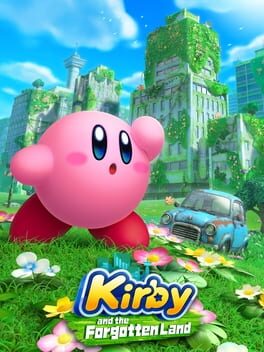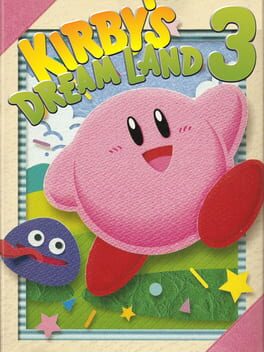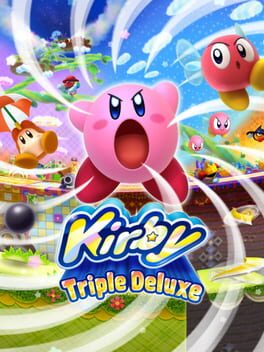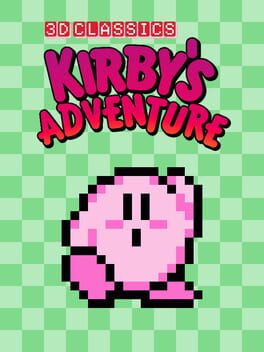Fernabo
112 reviews liked by Fernabo
Lunark
2023
Jogo excelente, que empolga e revive experiências do passado para 'adventures', como é o caso do 'Flashback' e até mesmo o primeiro 'Prince of Persia'. Lunark é desafiador, engajante, um adventure misturado com plataforma e um pouco de ação, com 4 bosses pra incrementar a jornada, sendo eles originários de articulações diferentes.
O meu único destaque negativo, vai para a duração do jogo. Em 5 horas, consegui zerar, com todas as dificuldades que encontrei nele. Seria muito interessante se ele fosse um pouquinho mais longo, mas eu também entendo que, por ser um adventure que tenta ao máximo resgatar a experiência de jogos como 'Flashback', o mesmo não poderia durar tanto. Seu objetivo é ter um visual arrasador, com uma história bacana que nos levam até algumas algumas discussões básicas, como por exemplo o nosso medo mais atual do que nunca, em sermos substituídos por robôs e perdermos nossos postos para eles.
Esse é um jogo que, aparentemente, assim como o Mighty No. 9, não costuma agradar as pessoas que jogaram OU que apoiaram o kickstarter. Expectativa realmente quebra a experiência de todo mundo. O fato deste jogo ter controles que simulam os daquela época, não torna-o desastroso, pior ou injogável. Os controles de um adventure, são exatamente pra manter essa fórmula. Você não é um grandiosíssimo e incrível personagem overpower, você só é um dos trabalhadores e operários que sabe usar uma arma, você tem que lidar com os problemas, e vá fazer isso com a mobilidade não tão encantadora que você possui. Faz parte do jogo.
Também não acho que ele seja uma cópia de 'Flashback', como alguns colegas da plataforma acusaram. Lunark faz parte do estilo, se consolidando como uma carta de amor à algo do passado. Quando outros jogos de plataforma seguem 'Megaman' ou 'Super Mario' à risca, ninguém costuma reclamar do quanto são parecidos. Talvez, o problema com Lunark seja a falta de muitos jogos adventure existirem no mercado, o que causa a estranheza e a sensação de "cópia".
Recomendo muito. Trilha sonora impecável, designs maravilhosos, cenários incríveis, pixel art apaixonante e cada nível ainda mais apaixonante que a sua pixel art.
O meu único destaque negativo, vai para a duração do jogo. Em 5 horas, consegui zerar, com todas as dificuldades que encontrei nele. Seria muito interessante se ele fosse um pouquinho mais longo, mas eu também entendo que, por ser um adventure que tenta ao máximo resgatar a experiência de jogos como 'Flashback', o mesmo não poderia durar tanto. Seu objetivo é ter um visual arrasador, com uma história bacana que nos levam até algumas algumas discussões básicas, como por exemplo o nosso medo mais atual do que nunca, em sermos substituídos por robôs e perdermos nossos postos para eles.
Esse é um jogo que, aparentemente, assim como o Mighty No. 9, não costuma agradar as pessoas que jogaram OU que apoiaram o kickstarter. Expectativa realmente quebra a experiência de todo mundo. O fato deste jogo ter controles que simulam os daquela época, não torna-o desastroso, pior ou injogável. Os controles de um adventure, são exatamente pra manter essa fórmula. Você não é um grandiosíssimo e incrível personagem overpower, você só é um dos trabalhadores e operários que sabe usar uma arma, você tem que lidar com os problemas, e vá fazer isso com a mobilidade não tão encantadora que você possui. Faz parte do jogo.
Também não acho que ele seja uma cópia de 'Flashback', como alguns colegas da plataforma acusaram. Lunark faz parte do estilo, se consolidando como uma carta de amor à algo do passado. Quando outros jogos de plataforma seguem 'Megaman' ou 'Super Mario' à risca, ninguém costuma reclamar do quanto são parecidos. Talvez, o problema com Lunark seja a falta de muitos jogos adventure existirem no mercado, o que causa a estranheza e a sensação de "cópia".
Recomendo muito. Trilha sonora impecável, designs maravilhosos, cenários incríveis, pixel art apaixonante e cada nível ainda mais apaixonante que a sua pixel art.
Persona 5 Royal
2019
i dunno, let's keep this quick. to say it's a bit clumsy is an understatement - and there are certainly aspects of the overall narrative i struggle with - but the depths of its sincerity won me over. i have no particular attachment to yakuza 7 either, and in fact i find much of that game to be very awkward, stilted, and grating so ultimately no one's more stunned than myself here.
when it's not luxuriating in this chilled-out ocean's twelve vibe which i loved, infinite wealth is written with far more intentionality and consideration than most entries in the series; while one might accuse of it of verging on threadbare or cloying for its strict emphasis on theme, i think the game trusts its audience to take some of the emotional leaps necessary to make the storytelling work. character writing for the leads and the party members has seen a dramatic improvement across the board. ichiban as usual brings a lot of levity to the table - thankfully none of it quite as irritating in the zany sense as 7 liked to employ - but kiryu's portions of the game are comparatively sobering. collecting memoirs has a weird psychological effect at times but the series has earned the right to do this by this point given how much of the kiryu saga can feel siloed or compartmentalized - in the same vein as gaiden, the game almost damns him for this, for never taking a chance to stop and reflect, for the consequences of his interminable martyr complex
that tendency to bury the past is only contrasted further by infinite wealth being maybe the most direct sequel the series has seen yet - the events of that game are still fresh in everyone's mind and sets the stage for the overarching conflict and everyone's investment in said conflict. it's a surprisingly natural extension of a lot of 7's themes, and i found it worked better for me this time. 7 often felt more gestural than anything else - to me it balanced far too much as this metaphorical (and literal) tearing down of the old ways, handling the introduction of a new protagonist, paying lipservice to series veterans and setting up parallels to the original ryu ga gotoku. infinite wealth to me feels more fully-formed, more confident; i think the team was able to use this title's unique hook and premise to really bring the most out of 7s promise of something new, and it could only have achieved it by taking the time to reflect on the past.
to this end: they made the game a JRPG this time, that counts for something. and not just a JRPG but one that feels as close to traditional RGG action as possible. some excellent systems this time with a lot of fascinating interplay and the level curve is fantastic. not necessary to sum up all the changes, you've seen them, but they really promote a lot of dynamic decision-making with respect to positioning and once you figure out how status effects can correlate with them you feel like your third eye's opening. very fond memories here of navigating around a crowd of enemies - some of whom have been put to sleep - and figuring out how best to maximize damage without waking anyone drowsy up. lots more strategy and enjoyment to be had here than pretty much anywhere in 7.
that said, i know RGG prides themselves on the statistics relating to players completing their titles, but they could really afford to take a few more risks with enemy waves in the main campaign. i felt like my most interesting encounters were usually street bosses or main story bosses, but the main campaign's filled with trash mobs. and i'm not saying every fight has to be some tactician's exercise - in fact i think that's the opposite of what people actually would enjoy - but i really wish the game took the time to play around even more with positioning. there are some exciting scenarios in the game that are too few and far in-between. stages that split up the party, encounters with unique mechanics...would really liked to have seen more in that vein.
some extra notes - would like to dig a bit deeper into the strengths of the narrative as well as some additional hangups but i can't be assed to write more
- honolulu's great, it gets probably a little too big for its own good but it's a real breath of fresh air for most of the game
- yamai is the best new character they've introduced in years
- dondoko island feels like a classic yakuza minigame in the best possible way, might even represent the apex of this kind of design. not obscenely grindy but just something casual and comfortable with enough layers to dig into without being overwheming and enough versatility to express yourself. shame you can't really say the same for sujimon!
- kiryu's party is disarmingly charming and they have some insanely good banter
- despite what some have said, i think this is a good follow-up to gaiden. it's not explicit about it but this is still very much a reckoning with kiryu's character and his mentality; it is every bit as concerned and preoccupied with the series mythos, the core ideas and conflicts driving a lot of installments
- honestly found the pacing to be on-par for the average RGG title if not better. i can concede that the dondoko island introduction was a bit too long but that is the most ground i can afford. if we can accept y5 into our hearts we can accept infinite wealth; IW makes y5 look deranged for its intrusiveness despite both titles occupying a similar length. if any of it registers as an actual problem, i think people would benefit from revisiting yakuza 7 to find it is almost exactly the same structurally if not worse
- IW is home to maybe the best needle drop in the medium
- played in japanese, like i usually do, so no real interest in commenting on the english dub since it's not real to me but i will say that what i listened to seemed like a bit of a step back from the dub quality in previous RGG games. yongyea isn't a convincing kiryu either and while i could be a bit more of a hater here all i will say is there is a STAGGERING whiplash involved in casting a guy like that as the lead in a game with themes like this. in a grouchier mood, i think it would genuinely be a bit difficult to look past this and it does leave me feeling sour, but ultimately the dub doesn't reflect my chosen means of engaging with the title and it never will
- what is difficult to look past is the game's DLC rollout, which arbitrarily gates higher difficulties, new game +, and a postgame dungeon. i acquired these through dubious means (which i highly recommend you also do) so i feel confident in saying they're really not at all worth the money unless you had a desire to spend more time in this world, but what a colossal and egregious failure to price it in this fashion. new game + specifically has tons of bizarre issues that make me believe a revision of some kind was necessary.
- you will not regret downloading this mod that removes the doors in dungeons
long story short, ryu ga gotoku's journey began in 2005 with a simple motif: to live is to not run away. so much of infinite wealth is about taking that notion to its furthest extent. it couldn't have possibly hit at a better time for me. at times it might be a classic case of this series biting off a bit more than it can chew for a sequel, but i don't think there's anything you can reliably point to that would make me think this is one step forwards, two steps back.
also awesome to have a game that posits that hawaii is filled with the fire monks from elden ring and then you have to travel to the resident evil 4 island to beat them up
when it's not luxuriating in this chilled-out ocean's twelve vibe which i loved, infinite wealth is written with far more intentionality and consideration than most entries in the series; while one might accuse of it of verging on threadbare or cloying for its strict emphasis on theme, i think the game trusts its audience to take some of the emotional leaps necessary to make the storytelling work. character writing for the leads and the party members has seen a dramatic improvement across the board. ichiban as usual brings a lot of levity to the table - thankfully none of it quite as irritating in the zany sense as 7 liked to employ - but kiryu's portions of the game are comparatively sobering. collecting memoirs has a weird psychological effect at times but the series has earned the right to do this by this point given how much of the kiryu saga can feel siloed or compartmentalized - in the same vein as gaiden, the game almost damns him for this, for never taking a chance to stop and reflect, for the consequences of his interminable martyr complex
that tendency to bury the past is only contrasted further by infinite wealth being maybe the most direct sequel the series has seen yet - the events of that game are still fresh in everyone's mind and sets the stage for the overarching conflict and everyone's investment in said conflict. it's a surprisingly natural extension of a lot of 7's themes, and i found it worked better for me this time. 7 often felt more gestural than anything else - to me it balanced far too much as this metaphorical (and literal) tearing down of the old ways, handling the introduction of a new protagonist, paying lipservice to series veterans and setting up parallels to the original ryu ga gotoku. infinite wealth to me feels more fully-formed, more confident; i think the team was able to use this title's unique hook and premise to really bring the most out of 7s promise of something new, and it could only have achieved it by taking the time to reflect on the past.
to this end: they made the game a JRPG this time, that counts for something. and not just a JRPG but one that feels as close to traditional RGG action as possible. some excellent systems this time with a lot of fascinating interplay and the level curve is fantastic. not necessary to sum up all the changes, you've seen them, but they really promote a lot of dynamic decision-making with respect to positioning and once you figure out how status effects can correlate with them you feel like your third eye's opening. very fond memories here of navigating around a crowd of enemies - some of whom have been put to sleep - and figuring out how best to maximize damage without waking anyone drowsy up. lots more strategy and enjoyment to be had here than pretty much anywhere in 7.
that said, i know RGG prides themselves on the statistics relating to players completing their titles, but they could really afford to take a few more risks with enemy waves in the main campaign. i felt like my most interesting encounters were usually street bosses or main story bosses, but the main campaign's filled with trash mobs. and i'm not saying every fight has to be some tactician's exercise - in fact i think that's the opposite of what people actually would enjoy - but i really wish the game took the time to play around even more with positioning. there are some exciting scenarios in the game that are too few and far in-between. stages that split up the party, encounters with unique mechanics...would really liked to have seen more in that vein.
some extra notes - would like to dig a bit deeper into the strengths of the narrative as well as some additional hangups but i can't be assed to write more
- honolulu's great, it gets probably a little too big for its own good but it's a real breath of fresh air for most of the game
- yamai is the best new character they've introduced in years
- dondoko island feels like a classic yakuza minigame in the best possible way, might even represent the apex of this kind of design. not obscenely grindy but just something casual and comfortable with enough layers to dig into without being overwheming and enough versatility to express yourself. shame you can't really say the same for sujimon!
- kiryu's party is disarmingly charming and they have some insanely good banter
- despite what some have said, i think this is a good follow-up to gaiden. it's not explicit about it but this is still very much a reckoning with kiryu's character and his mentality; it is every bit as concerned and preoccupied with the series mythos, the core ideas and conflicts driving a lot of installments
- honestly found the pacing to be on-par for the average RGG title if not better. i can concede that the dondoko island introduction was a bit too long but that is the most ground i can afford. if we can accept y5 into our hearts we can accept infinite wealth; IW makes y5 look deranged for its intrusiveness despite both titles occupying a similar length. if any of it registers as an actual problem, i think people would benefit from revisiting yakuza 7 to find it is almost exactly the same structurally if not worse
- IW is home to maybe the best needle drop in the medium
- played in japanese, like i usually do, so no real interest in commenting on the english dub since it's not real to me but i will say that what i listened to seemed like a bit of a step back from the dub quality in previous RGG games. yongyea isn't a convincing kiryu either and while i could be a bit more of a hater here all i will say is there is a STAGGERING whiplash involved in casting a guy like that as the lead in a game with themes like this. in a grouchier mood, i think it would genuinely be a bit difficult to look past this and it does leave me feeling sour, but ultimately the dub doesn't reflect my chosen means of engaging with the title and it never will
- what is difficult to look past is the game's DLC rollout, which arbitrarily gates higher difficulties, new game +, and a postgame dungeon. i acquired these through dubious means (which i highly recommend you also do) so i feel confident in saying they're really not at all worth the money unless you had a desire to spend more time in this world, but what a colossal and egregious failure to price it in this fashion. new game + specifically has tons of bizarre issues that make me believe a revision of some kind was necessary.
- you will not regret downloading this mod that removes the doors in dungeons
long story short, ryu ga gotoku's journey began in 2005 with a simple motif: to live is to not run away. so much of infinite wealth is about taking that notion to its furthest extent. it couldn't have possibly hit at a better time for me. at times it might be a classic case of this series biting off a bit more than it can chew for a sequel, but i don't think there's anything you can reliably point to that would make me think this is one step forwards, two steps back.
also awesome to have a game that posits that hawaii is filled with the fire monks from elden ring and then you have to travel to the resident evil 4 island to beat them up
Persona 3 Reload
2024
Quite possibly the closest thing to a "perfect" game you can get.
A complete experience with vastly improved combat, a thrilling story, an amazing cast, and fantastic music.
Note how I said it's the closest thing and not it is the perfect game, the game suffers from overwhelming the player with different content that's huge and it throws off otherwise great pacing. For example the resort and Kiryus personality stuff, while fantastic things, throw the pacing off and it takes a bit for it to get back on track alongside having dual parties with different levels that you have to constantly catch up to each other.
Pleasantly surprised by the more balanced approach to grinding for levels and equipment though, I was able to grind for both in under an hour any time I felt under leveled.
This is the greatest Turn Based JRPG to come out in a long while and I'm happy they stuck to it, I see no way to make a Kasuga focused Ryu Ga Gotoku game any better than what they have done here.
A complete experience with vastly improved combat, a thrilling story, an amazing cast, and fantastic music.
Note how I said it's the closest thing and not it is the perfect game, the game suffers from overwhelming the player with different content that's huge and it throws off otherwise great pacing. For example the resort and Kiryus personality stuff, while fantastic things, throw the pacing off and it takes a bit for it to get back on track alongside having dual parties with different levels that you have to constantly catch up to each other.
Pleasantly surprised by the more balanced approach to grinding for levels and equipment though, I was able to grind for both in under an hour any time I felt under leveled.
This is the greatest Turn Based JRPG to come out in a long while and I'm happy they stuck to it, I see no way to make a Kasuga focused Ryu Ga Gotoku game any better than what they have done here.
this is rgg’s best work and its unbelievable how they do it in a short time of the release between gaiden and iw, they deserve all the credits they get and im glad i caught up to such an amazing series and i look forward to their next project whether be judgment 3 or y9 im all in because rgg always delivers!!
theres lots of highs and barely any low lows which i dont really care pretty much the game does it all for me with the gameplay being the most fun i have ever had in a rpg game, its certainly a step up from y7 and with the new characters really well written characters especially YAMAI, HE IS SUCH AN EXCELLENT CHARACTER(this shows rgg learning their mistakes of writing off characters really badly in their past games) THIS IS HOW YOU DO IT, I LOVE YOU YAMAI
theres lots of highs and barely any low lows which i dont really care pretty much the game does it all for me with the gameplay being the most fun i have ever had in a rpg game, its certainly a step up from y7 and with the new characters really well written characters especially YAMAI, HE IS SUCH AN EXCELLENT CHARACTER(this shows rgg learning their mistakes of writing off characters really badly in their past games) THIS IS HOW YOU DO IT, I LOVE YOU YAMAI
This review contains spoilers
“The Dragon Engine at this point is kind of a bit of an old engine. We have made a lot of minor updates over the years for it, or we've made a lot of minor updates over it, but we haven't made any major updates. So probably next what's coming for would be a major update if we had to do anything,” Yokoyama says.
...
“So, regarding [Unreal Engine 5], yes, we are researching it,” Yokoyama said in response to a question asked by IGN during a roundtable interview. “We are kind of looking at it and saying, what are the merits of each? What's the merit of the Dragon Engine? What's the merit of the Unreal Engine? And when it comes down to it, the Dragon Engine…it's really perfectly designed to represent a city at night. The nighttime city. Whereas Unreal, it's better at showing nature and daytime and that sort of feel.”
- Masayoshi Yokoyama, September 14, 2022
it shouldn't come as a surprise that RGG studio might be considering some evolution of their proprietary engine following the release of infinite wealth. key figures from the studio have spoken at length about the technical difficulties and production challenges associated with the engine, and unreal engine has the obvious benefit of practicality that a proprietary engine does not, with vast swathes of community resources to tap into during production.
of course the question is whether or not this proposed engine change will constitute a productive shift for the studio - certainly, epic's growing engine monopolization raises some concerns, and the ishin remake, itself an attempt to learn the processes of unreal, ultimately looks flat, lacking in warmth. likewise, it can't be understated just how well-optimized the dragon engine is in contrast to something like unreal engine 5.
it's worth noting that we are now seven years into a dragon engine-led era, ironically introduced by the game which initially purported to be kazuma kiryu's swan song: yakuza 6, one of the franchise's most polarizing entries. setting aside thoughts on its narrative, one of yakuza 6's chief issues is how spotty it is. while it's capable of rendering some gorgeous environments - the quaint countryside of hiroshima is still pound for pound my favourite locale in the series - it's also marred by poor in-engine presentation, a stilted combat system, frictional rpg systems, and disarming balancing.
i don't think it's a coincidence that the first entries in this series to eschew the traditional inventory limitations on healing items are also the first ones to have this many issues with its combat, with mechanics that are more suggestive than they are clearly defined. and it's not just yakuza 6 either, even if that game does reflect the nadir of these complications; several quirks and blemishes are instead intrinsic to almost all the dragon engine games and never really get fixed. there's still no consistent and meaningful way to shatter enemies' guards. enemies still recover very quickly and will often break their animations or shrug off further attacks to do so. enemies will have unblockable grapples that are terribly telegraphed. heat systems sometimes feel like an afterthought, or an excuse to rapidly pile on damage moreso than to facilitate interesting decision-making. if the general intent of the combat of this era is to evoke a film set - a sandbox and space for opportunity allowing for high octane action and gruesome applications of the environment - then these titles fall short compared to even yakuza 5, which has a colossal list of heat actions and arenas cluttered with miscellaneous knickknacks allowing for quick experimentation, dwarfing almost anything else in the dragon engine games.
the list goes on. as a whole, the combat of the dragon engine games behaves far less consistently than the 2005 - 2015 RGG era (also marked by drawbacks, albeit for different reasons), which can often be a really frustrating element of the newer games to deal with. the judgment subseries fares a bit better in this respect, but is still shackled to many of the same key concerns.
however, yakuza 6 - and the dragon engine in turn - does incorporate several features that i think would be difficult to discount, since these titles aren't strictly combat showcases. as adventure games, they've really started coming into their own. dragon engine titles generally have a faster gameplay loop, seamlessly transitioning into and out of battle with ease. this extends to arcades, shops, and most interiors within the game. the explosiveness of the combat works to its favour a lot of the time - it's hard not to crack a wry smile at any of the insane ragdoll shenanigans unfolding on screen. long battles and scenarios are oftentimes more unique than anything in preceding entries - the various infiltration scenarios in 6 come to mind, as well as the battle on the cargo island. and of course, the presentation of these titles reached an apex with the dragon engine games - a necessary virtue in a series with a reputation for lengthy cutscenes.
it's that level of production which gaiden has really electrified - this is without a doubt the best looking game in the series. the team has gotten ridiculously good at exploring what can be accomplished during in-engine scenes. where yakuza 6 was rife with expository scenes of characters blankly emoting and talking to each other, gaiden instead enriches its canvas with various techniques - action choreography, bespoke animations, and some truly stunning lighting from time to time. it really breathes a lot of life into exactly how this series chooses to disseminate its narrative - if any of this is possible owing to its pared back approach, then please, by all means, rgg studio, i would love to see more gaiden titles.
the title's combat chooses to evolve the lineage from yakuza 6 and kiwami 2 while largely ignoring the judgment subseries. this makes gaiden more of a lateral move than a strict improvement, and makes for a bit of an awkward approach when contrasted against the highs lost judgment managed to reach. credit where credit is due, the yakuza style is the strongest implementation of this specific combat system yet, and the agent style, while unwieldy, earns points for being one of the most idiosyncratic styles in the series yet. they remembered having a combat theme with grungy vocals is kind of essential to kiryu's whole deal, can't be mad at them.
gaiden's chief draw is really its narrative. ultimately, the smartest thing about gaiden is that it really is not a retroactive apology for y6 the way so many - myself included - suspected it would be. gaiden instead leaves the status quo intact from 6 and is content to simply wrestle with the consequences of kiryu's actions. to that end, the game is much less of a character study than is currently advertised, but this really works in its favour. we already know that kiryu is impulsive and strictly bound to unaccommodating codes of honour; these traits almost get him summarily executed in a clandestine, dingy room far away from his loved ones. we already know that kiryu is passive and wrestles with his conflicting loyalties to both his adoptive family and the tojo clan; gaiden forces kiryu to play a pivotal role in dissolving the tojo clan at the behest of his successor/figurative son, causing an organization he devoted his life to for almost 28 years to crumble into dust without any real say in the matter.
turning a stray plot beat from y7 into a pivotal moment of kiryu's arc and imbuing it with all the weight it deserves is genius. similarly, forcing that dissolution to culminate in a battle against someone who is essentially the embodiment of every guy in a fart hoodie who kiryu essence of finishing stomp'd was a fantastically realized decision. shishido is probably one of my favourite characters in the series. unlike most other final bosses in the series, shishido isn't wearing a suit, his face communicates his troubled history immediately and his irezumi covers most of his battered and bruised body - it speaks to the sense that there is no other life for this character imaginable except for the wretched and brutish violence of the yakuza. the game makes clear that there is no honour in his way of life, no decorum. as other characters posit, he's a wounded animal trying to escape his forced euthanasia. fleeting dream starting up is probably the most beautiful moment in the series - it's just so irrefutably clear at that moment that shishido is fighting a losing battle which he does not have the capacity or clarity to appreciate, much less understand.
in general, gaiden is the least inclined entry in this series to lionize the yakuza as an organization. even those with honour like watase and tsuruno, ostensibly your allies, are not above petty manipulation and using others for their own gain. this extends further to the game's monstrous villains this time around - particularly nishitani III, who i must confess is very weirdly handled? the seeds of a compelling idea are there - nishitani III gave up his name and adopted a new title before proceeding to more or less denigrate it - but if the constant innuendo surrounding his involvement with shishido is to be taken at face value, he invites a level of darkness into the narrative proceedings that i'm not sure RGG studio's writers are tasked to handle. likewise, configuring the game's only korean character as yet another jingweon survivor scans as a bit tasteless at this point (although to be clear, nishitani himself never brings this up and doesn't seem much interested in that facet of his past - it's tsuruno who keeps harping on this as justification to murder nishitani). i do, however, enjoy the kind of psycho FKMT vibes of the castle, it's an alright setting.
throughout gaiden i spent a lot of time reflecting on just how much of a privilege it is to chart out one character's story, with close to 40 years of history to sift through. it's certainly not an opportunity almost any other developer can dream of, and RGG studio has often squandered and wasted it. almost every entry in this series is set in the year in which it released - kiryu keeps getting older, and you can't exactly turn back the clock on any of it. and so in this subdued way gaiden is really one of the first entries that i felt manages to effectively reckon with the often messy and wayward elements of the series - all the errant tendencies for character mismanagement and disorganized plotting and wasted opportunity - and it does so by simply choosing to tear all that history down and start anew. kind of remarkably poignant stuff from this studio.
misc notes:
- i appreciated that this game pretends to be an 007-esque spy thriller for all of two hours before revealing that a.) kiryu fucking sucks at this b.) the first half antagonists' whole plan is basically 'kiryu we have to link up 🗣️‼️', which then allows for this to become a typical RGG meathead game. beautiful.
- the akame network is a decent enough way to recontextualize and consolidate the substories/busywork of RGG games for the purposes of a smaller scale title. it's a bit tired and some of these substories are actually just kind of bad, but akame herself is charming.
- as previously mentioned agent is fun because it's so odd but it really underscores just how badly these games have needed a proper lock-on function for almost two decades now. the spider tool especially is quite unwieldy
- i really do think that finale is going to occupy a spot in my brain for the next few years.
- the game doesn't call attention to any of it but there are a lot of miscellaneous details that are brought forward which i ended up appreciating. there's an exchange in yakuza 0 where a character asks kiryu if he's someone who could ever be worth one billion yen; in gaiden, the watase family coughs up 50 billion yen to spare kiryu and retain his services, much to his chagrin
- really looking forward to infinite wealth particularly after playing the demo, seems like a straightforward improvement. can't wait for kiryu to put up michael jordan numbers in the RGG equivalent of the flu game for his character arc.
- find it very promising that yokoyama is aware that people want more gaiden-sized titles - i only hope that they're able to clean up some of the bunk pacing because it really does get kind of irritating here and while i'm long past the point of being inoculated to the bullshit in this series, i could reasonably see this as being a major turn-off for anyone.
- it does bug me a lot that these games call kiryu's style the dragon of dojima style...no it's not...i see akira in the colosseum literally using the old kiryu style, where do you get off
- extremely funny that this game introduces the 'daidoji zone' as a shadow realm equivalent. if an RGG character is not confirmed deceased and they have since disappeared from the fabric of the narrative then they are either now a bartender or they are a daidoji faction agent
- ichiban was taking a nap during the RGG equivalent of the final fight in mgs4
...
“So, regarding [Unreal Engine 5], yes, we are researching it,” Yokoyama said in response to a question asked by IGN during a roundtable interview. “We are kind of looking at it and saying, what are the merits of each? What's the merit of the Dragon Engine? What's the merit of the Unreal Engine? And when it comes down to it, the Dragon Engine…it's really perfectly designed to represent a city at night. The nighttime city. Whereas Unreal, it's better at showing nature and daytime and that sort of feel.”
- Masayoshi Yokoyama, September 14, 2022
it shouldn't come as a surprise that RGG studio might be considering some evolution of their proprietary engine following the release of infinite wealth. key figures from the studio have spoken at length about the technical difficulties and production challenges associated with the engine, and unreal engine has the obvious benefit of practicality that a proprietary engine does not, with vast swathes of community resources to tap into during production.
of course the question is whether or not this proposed engine change will constitute a productive shift for the studio - certainly, epic's growing engine monopolization raises some concerns, and the ishin remake, itself an attempt to learn the processes of unreal, ultimately looks flat, lacking in warmth. likewise, it can't be understated just how well-optimized the dragon engine is in contrast to something like unreal engine 5.
it's worth noting that we are now seven years into a dragon engine-led era, ironically introduced by the game which initially purported to be kazuma kiryu's swan song: yakuza 6, one of the franchise's most polarizing entries. setting aside thoughts on its narrative, one of yakuza 6's chief issues is how spotty it is. while it's capable of rendering some gorgeous environments - the quaint countryside of hiroshima is still pound for pound my favourite locale in the series - it's also marred by poor in-engine presentation, a stilted combat system, frictional rpg systems, and disarming balancing.
i don't think it's a coincidence that the first entries in this series to eschew the traditional inventory limitations on healing items are also the first ones to have this many issues with its combat, with mechanics that are more suggestive than they are clearly defined. and it's not just yakuza 6 either, even if that game does reflect the nadir of these complications; several quirks and blemishes are instead intrinsic to almost all the dragon engine games and never really get fixed. there's still no consistent and meaningful way to shatter enemies' guards. enemies still recover very quickly and will often break their animations or shrug off further attacks to do so. enemies will have unblockable grapples that are terribly telegraphed. heat systems sometimes feel like an afterthought, or an excuse to rapidly pile on damage moreso than to facilitate interesting decision-making. if the general intent of the combat of this era is to evoke a film set - a sandbox and space for opportunity allowing for high octane action and gruesome applications of the environment - then these titles fall short compared to even yakuza 5, which has a colossal list of heat actions and arenas cluttered with miscellaneous knickknacks allowing for quick experimentation, dwarfing almost anything else in the dragon engine games.
the list goes on. as a whole, the combat of the dragon engine games behaves far less consistently than the 2005 - 2015 RGG era (also marked by drawbacks, albeit for different reasons), which can often be a really frustrating element of the newer games to deal with. the judgment subseries fares a bit better in this respect, but is still shackled to many of the same key concerns.
however, yakuza 6 - and the dragon engine in turn - does incorporate several features that i think would be difficult to discount, since these titles aren't strictly combat showcases. as adventure games, they've really started coming into their own. dragon engine titles generally have a faster gameplay loop, seamlessly transitioning into and out of battle with ease. this extends to arcades, shops, and most interiors within the game. the explosiveness of the combat works to its favour a lot of the time - it's hard not to crack a wry smile at any of the insane ragdoll shenanigans unfolding on screen. long battles and scenarios are oftentimes more unique than anything in preceding entries - the various infiltration scenarios in 6 come to mind, as well as the battle on the cargo island. and of course, the presentation of these titles reached an apex with the dragon engine games - a necessary virtue in a series with a reputation for lengthy cutscenes.
it's that level of production which gaiden has really electrified - this is without a doubt the best looking game in the series. the team has gotten ridiculously good at exploring what can be accomplished during in-engine scenes. where yakuza 6 was rife with expository scenes of characters blankly emoting and talking to each other, gaiden instead enriches its canvas with various techniques - action choreography, bespoke animations, and some truly stunning lighting from time to time. it really breathes a lot of life into exactly how this series chooses to disseminate its narrative - if any of this is possible owing to its pared back approach, then please, by all means, rgg studio, i would love to see more gaiden titles.
the title's combat chooses to evolve the lineage from yakuza 6 and kiwami 2 while largely ignoring the judgment subseries. this makes gaiden more of a lateral move than a strict improvement, and makes for a bit of an awkward approach when contrasted against the highs lost judgment managed to reach. credit where credit is due, the yakuza style is the strongest implementation of this specific combat system yet, and the agent style, while unwieldy, earns points for being one of the most idiosyncratic styles in the series yet. they remembered having a combat theme with grungy vocals is kind of essential to kiryu's whole deal, can't be mad at them.
gaiden's chief draw is really its narrative. ultimately, the smartest thing about gaiden is that it really is not a retroactive apology for y6 the way so many - myself included - suspected it would be. gaiden instead leaves the status quo intact from 6 and is content to simply wrestle with the consequences of kiryu's actions. to that end, the game is much less of a character study than is currently advertised, but this really works in its favour. we already know that kiryu is impulsive and strictly bound to unaccommodating codes of honour; these traits almost get him summarily executed in a clandestine, dingy room far away from his loved ones. we already know that kiryu is passive and wrestles with his conflicting loyalties to both his adoptive family and the tojo clan; gaiden forces kiryu to play a pivotal role in dissolving the tojo clan at the behest of his successor/figurative son, causing an organization he devoted his life to for almost 28 years to crumble into dust without any real say in the matter.
turning a stray plot beat from y7 into a pivotal moment of kiryu's arc and imbuing it with all the weight it deserves is genius. similarly, forcing that dissolution to culminate in a battle against someone who is essentially the embodiment of every guy in a fart hoodie who kiryu essence of finishing stomp'd was a fantastically realized decision. shishido is probably one of my favourite characters in the series. unlike most other final bosses in the series, shishido isn't wearing a suit, his face communicates his troubled history immediately and his irezumi covers most of his battered and bruised body - it speaks to the sense that there is no other life for this character imaginable except for the wretched and brutish violence of the yakuza. the game makes clear that there is no honour in his way of life, no decorum. as other characters posit, he's a wounded animal trying to escape his forced euthanasia. fleeting dream starting up is probably the most beautiful moment in the series - it's just so irrefutably clear at that moment that shishido is fighting a losing battle which he does not have the capacity or clarity to appreciate, much less understand.
in general, gaiden is the least inclined entry in this series to lionize the yakuza as an organization. even those with honour like watase and tsuruno, ostensibly your allies, are not above petty manipulation and using others for their own gain. this extends further to the game's monstrous villains this time around - particularly nishitani III, who i must confess is very weirdly handled? the seeds of a compelling idea are there - nishitani III gave up his name and adopted a new title before proceeding to more or less denigrate it - but if the constant innuendo surrounding his involvement with shishido is to be taken at face value, he invites a level of darkness into the narrative proceedings that i'm not sure RGG studio's writers are tasked to handle. likewise, configuring the game's only korean character as yet another jingweon survivor scans as a bit tasteless at this point (although to be clear, nishitani himself never brings this up and doesn't seem much interested in that facet of his past - it's tsuruno who keeps harping on this as justification to murder nishitani). i do, however, enjoy the kind of psycho FKMT vibes of the castle, it's an alright setting.
throughout gaiden i spent a lot of time reflecting on just how much of a privilege it is to chart out one character's story, with close to 40 years of history to sift through. it's certainly not an opportunity almost any other developer can dream of, and RGG studio has often squandered and wasted it. almost every entry in this series is set in the year in which it released - kiryu keeps getting older, and you can't exactly turn back the clock on any of it. and so in this subdued way gaiden is really one of the first entries that i felt manages to effectively reckon with the often messy and wayward elements of the series - all the errant tendencies for character mismanagement and disorganized plotting and wasted opportunity - and it does so by simply choosing to tear all that history down and start anew. kind of remarkably poignant stuff from this studio.
misc notes:
- i appreciated that this game pretends to be an 007-esque spy thriller for all of two hours before revealing that a.) kiryu fucking sucks at this b.) the first half antagonists' whole plan is basically 'kiryu we have to link up 🗣️‼️', which then allows for this to become a typical RGG meathead game. beautiful.
- the akame network is a decent enough way to recontextualize and consolidate the substories/busywork of RGG games for the purposes of a smaller scale title. it's a bit tired and some of these substories are actually just kind of bad, but akame herself is charming.
- as previously mentioned agent is fun because it's so odd but it really underscores just how badly these games have needed a proper lock-on function for almost two decades now. the spider tool especially is quite unwieldy
- i really do think that finale is going to occupy a spot in my brain for the next few years.
- the game doesn't call attention to any of it but there are a lot of miscellaneous details that are brought forward which i ended up appreciating. there's an exchange in yakuza 0 where a character asks kiryu if he's someone who could ever be worth one billion yen; in gaiden, the watase family coughs up 50 billion yen to spare kiryu and retain his services, much to his chagrin
- really looking forward to infinite wealth particularly after playing the demo, seems like a straightforward improvement. can't wait for kiryu to put up michael jordan numbers in the RGG equivalent of the flu game for his character arc.
- find it very promising that yokoyama is aware that people want more gaiden-sized titles - i only hope that they're able to clean up some of the bunk pacing because it really does get kind of irritating here and while i'm long past the point of being inoculated to the bullshit in this series, i could reasonably see this as being a major turn-off for anyone.
- it does bug me a lot that these games call kiryu's style the dragon of dojima style...no it's not...i see akira in the colosseum literally using the old kiryu style, where do you get off
- extremely funny that this game introduces the 'daidoji zone' as a shadow realm equivalent. if an RGG character is not confirmed deceased and they have since disappeared from the fabric of the narrative then they are either now a bartender or they are a daidoji faction agent
- ichiban was taking a nap during the RGG equivalent of the final fight in mgs4
8 lists liked by Fernabo
by HeavensDooooor |
31 Games
by HeavensDooooor |
15 Games
by pepoxler |
139 Games
by BeachEpisode |
108 Games
by EvilJoji7 |
143 Games
by Moepo |
342 Games
by Littlepaws |
17 Games
